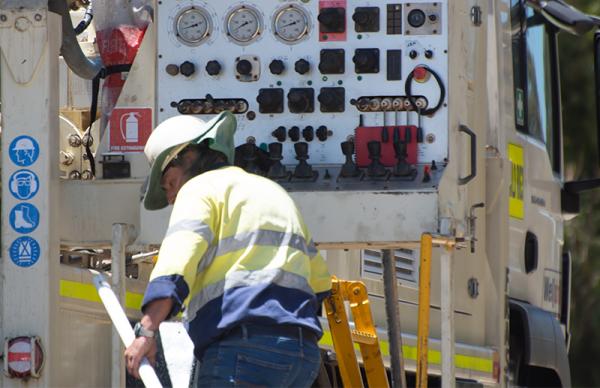
Waste water or water plant operator
Water industry operatives operate, monitor and maintain water supply and wastewater treatment systems. They regulate the flow of water through the various stages of treatment, such as filtration, addition of chemicals and aeration, taking regular samples to test the water quality. Water industry operatives must also operate and maintain the pipes, valves and pumps that are used to transport water and effluent (wastewater) to and from the treatment plant, as well as through the plant itself during the treatment process. They are also responsible for monitoring water flow metres, pressure gauges and effluent water quality, ensuring the plant runs effectively and repairing any faults.
Working conditions
Water industry operatives work in treatment plants and pumping stations throughout Western Australia, though the majority of employment opportunities are in the Perth metropolitan and South West regions of the state. They may work both indoors and outdoors in most weather conditions. Water treatment plants can be smelly, however most plants have processes in place to minimise unpleasant odours. These workers frequently work with dangerous chemicals and must follow strict occupation health and safety procedures to reduce risks. Most water industry operatives work standard business hours, though some plants may require weekend work. Water industry operatives may also be required to be on call in case problems arise at the plant after hours.
Tools and technologies
Water industry operatives operate pumps and valves used to transport water and effluent and must be able to read the gauges to monitor these operations. They also use laboratory equipment to collect and test water samples for purity, colour, pH (acidity) and general quality. Chemicals, such as fluoride, are added to water in very specific quantities, requiring careful handling and measuring. Water industry operatives may also be required to wear safety equipment, such as gloves, masks, goggles, overalls and wet weather gear. Two-way radios may also be used for communication.
Education and training
To become a wastewater or water plant operator you usually need to undertake a water industry operator (level 2, level 3 or level 4) or water industry treatment (level 3 or level 4) traineeship. The traineeships usually take 12 to 24 months to complete, and the level 2 traineeship is available as a school-based traineeship.

Free support and assistance
Your local jobs and Skills Centre can provide free information, support and assistance to help you decide on the best training options to meet your goals.
Disclaimer
The information presented on the occupation profiles within this website is offered as a guide only.


